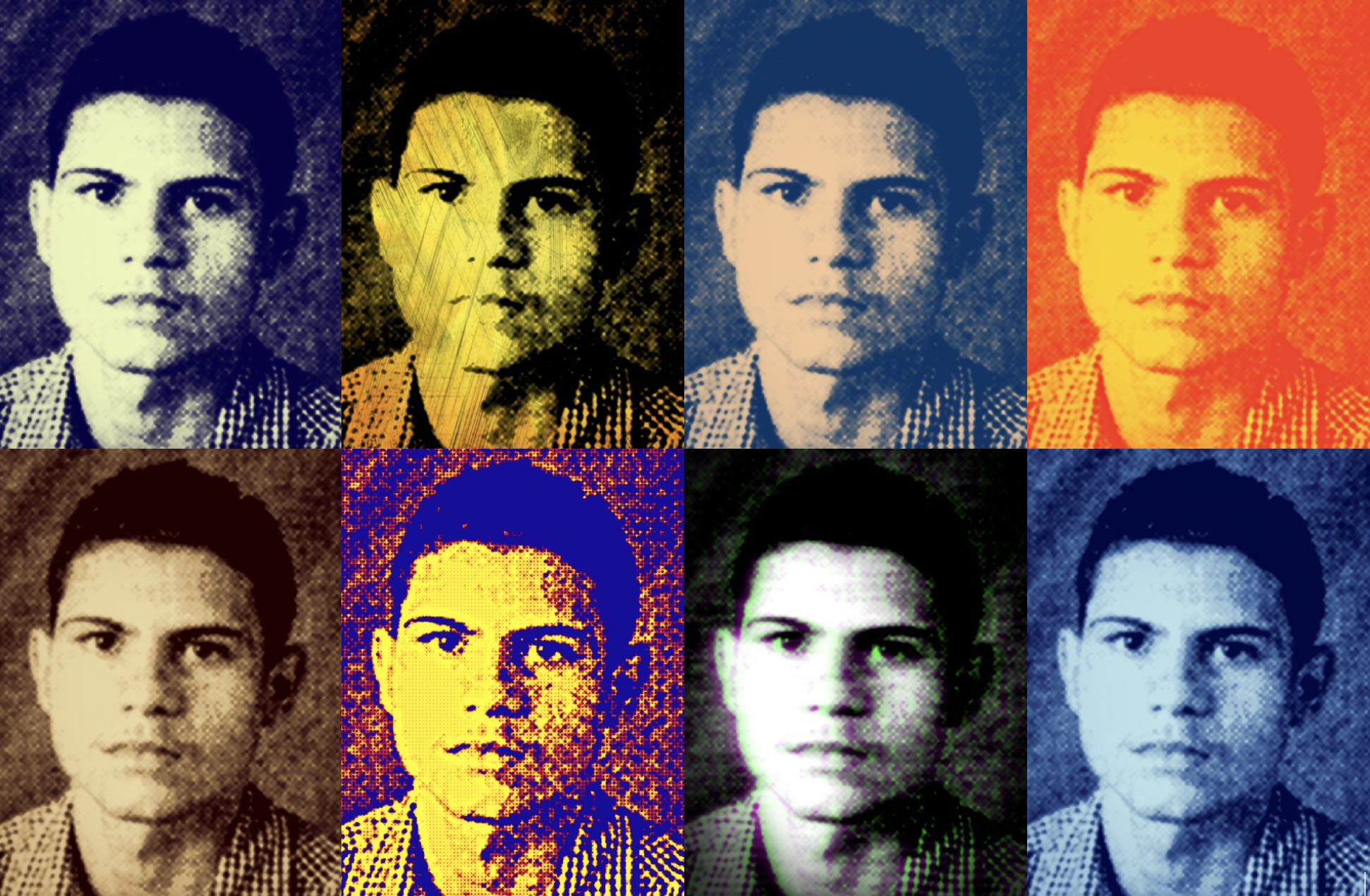This article on the monologue Honorable Discharge was originally published on the October-November print edition of Barriozona Magazine under the title Threat and Response. This online version was slightly modified.
What does a local tragedy have to do with a major war in a far away country? How is the killing of a 15-year-old Mesa, Arizona boy by police comparable to the situation of a soldier in Iraq?
According to a monologue written by Arizona State University professor Jeff McMahon, both situations have many similarities by using the concept of threat and response.
The piece, prompted by the August 25, 2003 shooting death of Mario Madrigal, Jr., killed by officers from the Mesa Police Department after he allegedly disobeyed police commands, stars fellow ASU professor and performer Lance Gharavi, has been presented in venues in Phoenix and in New York, and according to McMahon will be performed again soon.
Honorable Discharge is a non-traditional monologue because actor Gharavi continuously shifts characters to explore the different viewpoints and reactions in people when they are presented with a threat or danger.
This approach intends to verbalize what goes through the minds of the police officers and the boy, as well as the minds of American soldiers and Iraqi citizens.
According to its creator, the monologue examines illusions of security and the use of force through the metaphor of discharge and distance, by using multiple voices and personas performed by Gharavi.
Needless to say, the piece is a very intense soliloquy that draws from a dramatic force by its reflective, challenging questioning: “Did you talk to him? Did you talk to the kid? Why ten rounds? How many per policeman? Who got in the extra shot? Where did the other bullets go?”
Honorable Discharge was originally written for professor Gharavi. McMahon did not create a single character but a number of personas, because of the actor’s aptitude to rapidly switch different characters, and his ability to make different voices.
In this sense, the piece is distinctively unique because the audience is presented with the situations from several perspectives, which allows the public to get a glimpse into what the characters may be thinking, how they react to dangerous situations, and their feelings of desperation, impotence, arrogance, and their attitudes of power and helplessness.
The piece reflects an upward trend to present current political, cultural and social issues. Both ASU professors have written and presented performance pieces about these themes, including Heel and Sound Zero. Both pieces were developed as a reaction to the terrorist attacks.
Heel, written by McMahon, is a solo, multimedia performance piece, a fast-paced shifting of emotions, characters and images, probing the emotional and political wounds left by the 9/11 attacks, presented with a mix of wry humor, skepticism, and painful honesty. Sound Zero is an interactive multimedia piece written by Gharavi as an attempt to cope with post-9/11 emotions and feelings.
The creative response of theatre to events such as 9/11, the Madrigal case, and the war in Iraq demonstrate how art can address important social problems and present them to the community, which can generate, in turn, a reflective and cathartic community discussion.
Honorable Discharge does that by provoking people to search for their own answers for tough questions like these: “Have you got what it takes to protect yourself? From him? Does he need ten commandments/ten minutes/ten years/ten shots to bring him back into line?”
The monologue Honorable Discharge is included in the book Six Monologues 1990-2007 by Jeff McMahon, and published by NoPassport Press in 2018.
© 2004 - 2025, Barriozona Magazine. All rights reserved.





